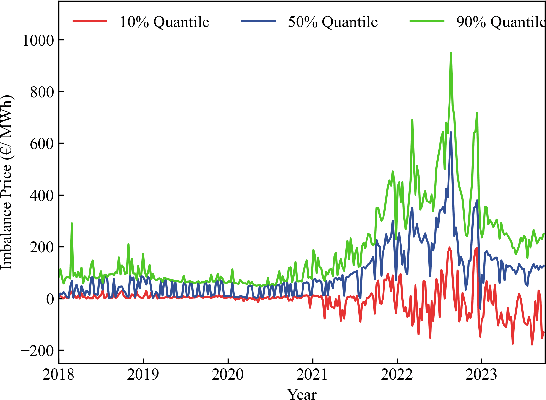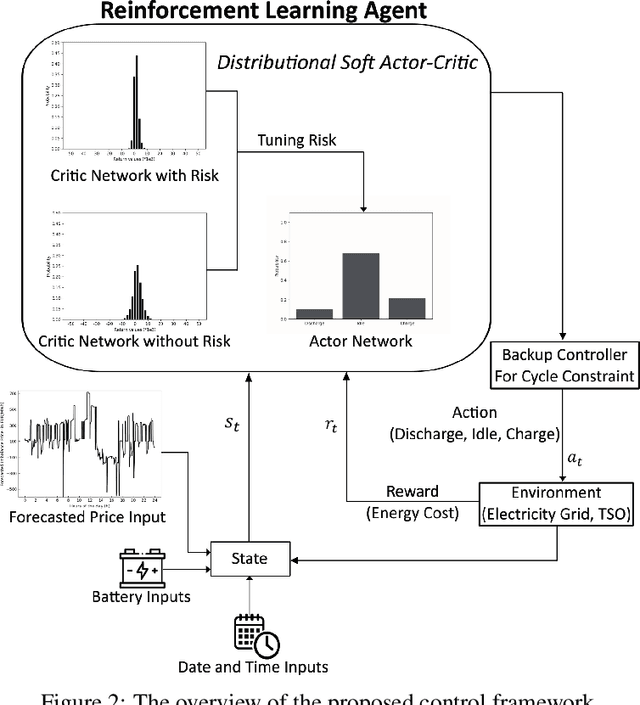Distributional Reinforcement Learning-based Energy Arbitrage Strategies in Imbalance Settlement Mechanism
Paper and Code
Dec 23, 2023



Growth in the penetration of renewable energy sources makes supply more uncertain and leads to an increase in the system imbalance. This trend, together with the single imbalance pricing, opens an opportunity for balance responsible parties (BRPs) to perform energy arbitrage in the imbalance settlement mechanism. To this end, we propose a battery control framework based on distributional reinforcement learning (DRL). Our proposed control framework takes a risk-sensitive perspective, allowing BRPs to adjust their risk preferences: we aim to optimize a weighted sum of the arbitrage profit and a risk measure while constraining the daily number of cycles for the battery. We assess the performance of our proposed control framework using the Belgian imbalance prices of 2022 and compare two state-of-the-art RL methods, deep Q learning and soft actor-critic. Results reveal that the distributional soft actor-critic method can outperform other methods. Moreover, we note that our fully risk-averse agent appropriately learns to hedge against the risk related to the unknown imbalance price by (dis)charging the battery only when the agent is more certain about the price.
 Add to Chrome
Add to Chrome Add to Firefox
Add to Firefox Add to Edge
Add to Edge